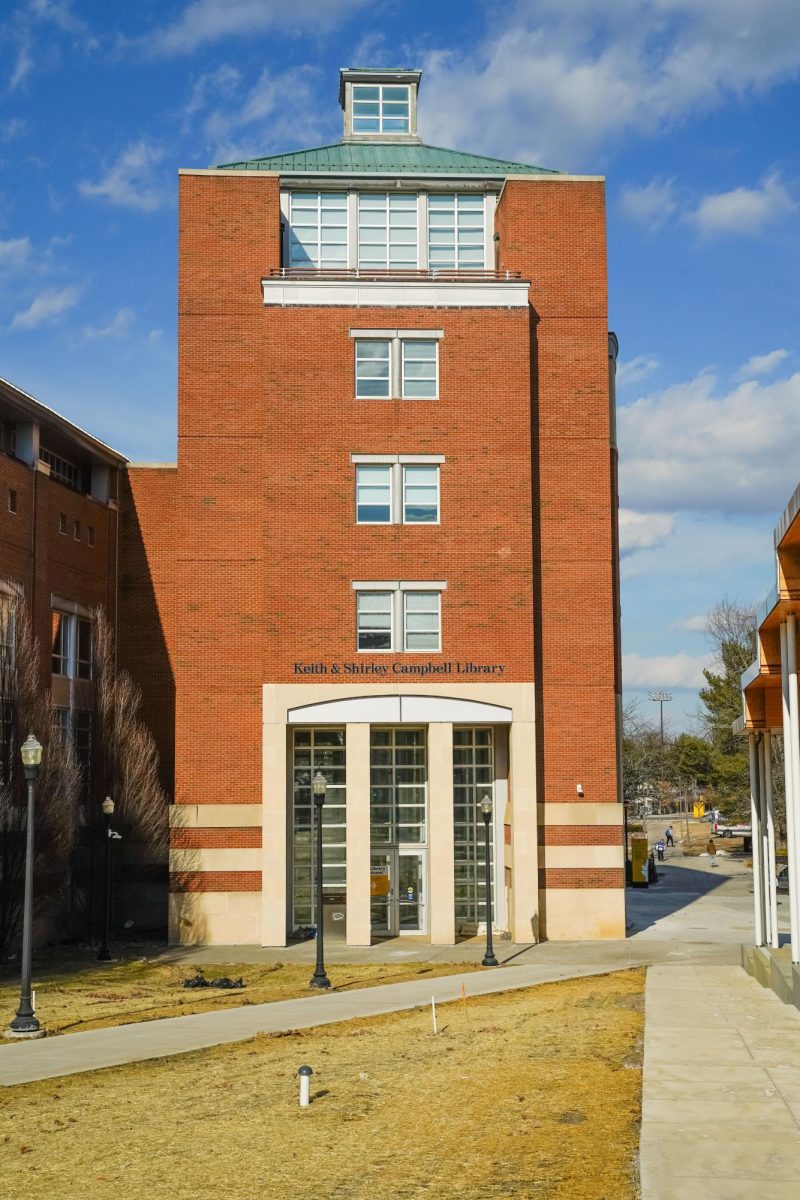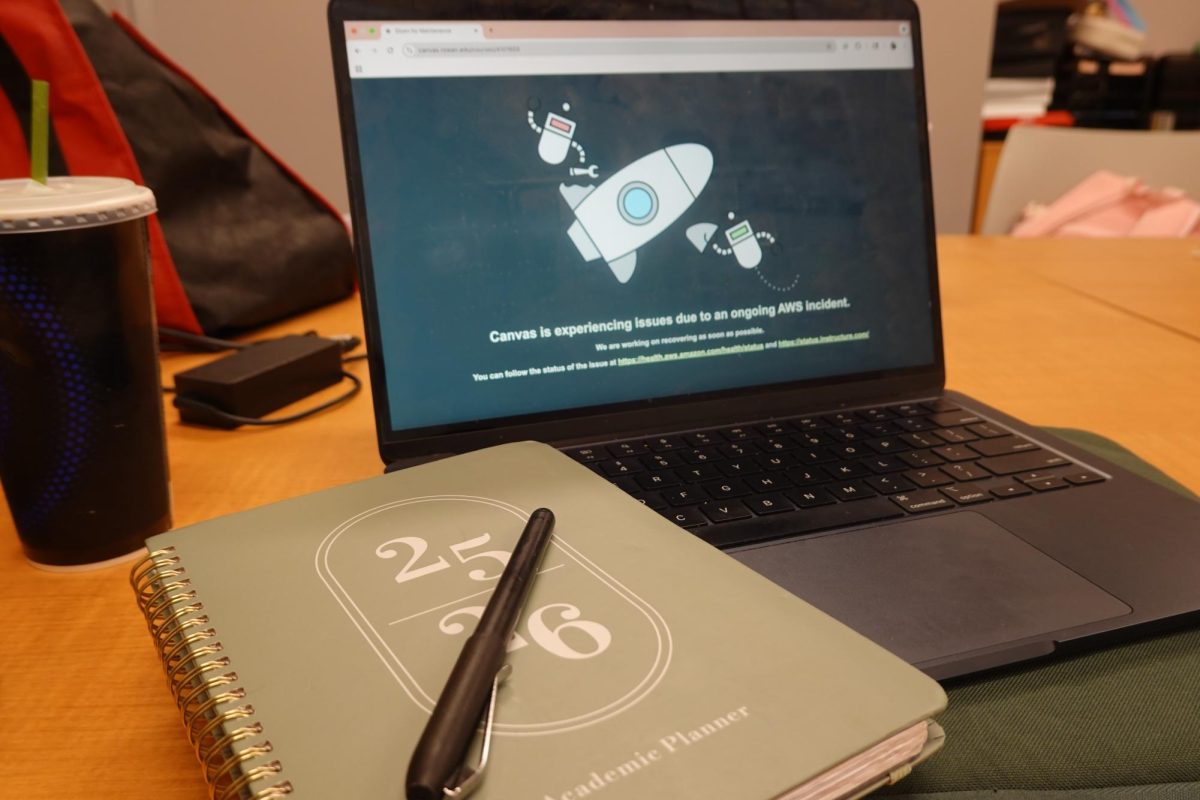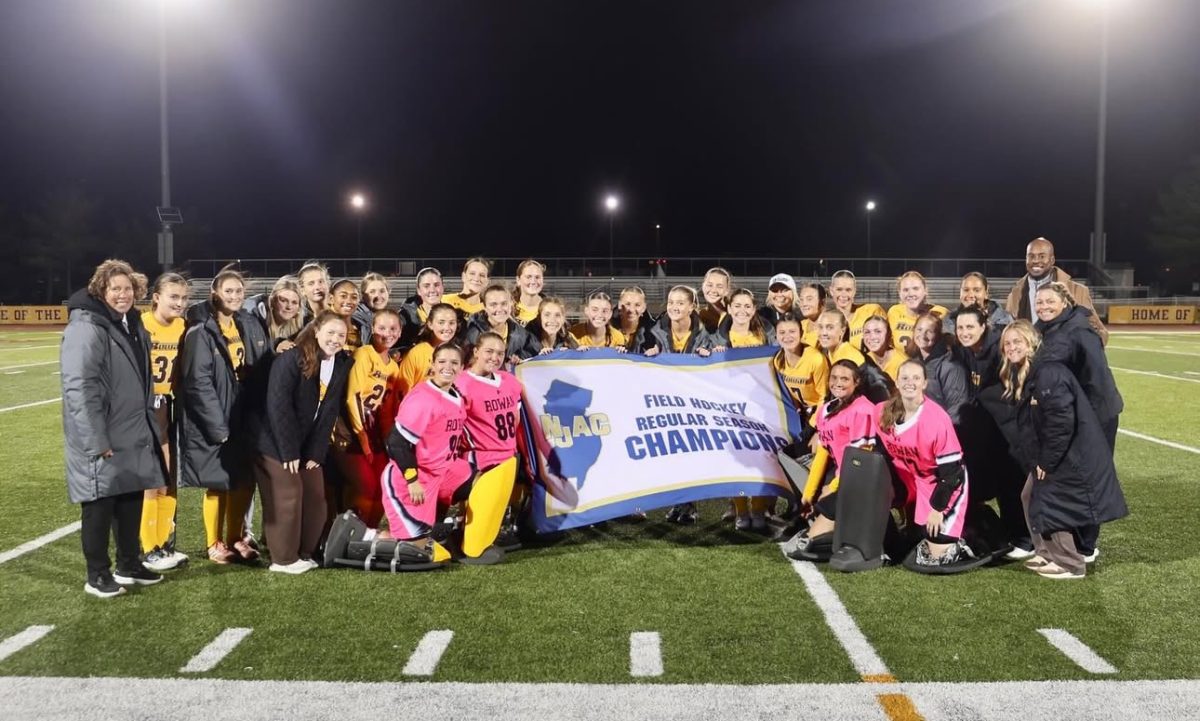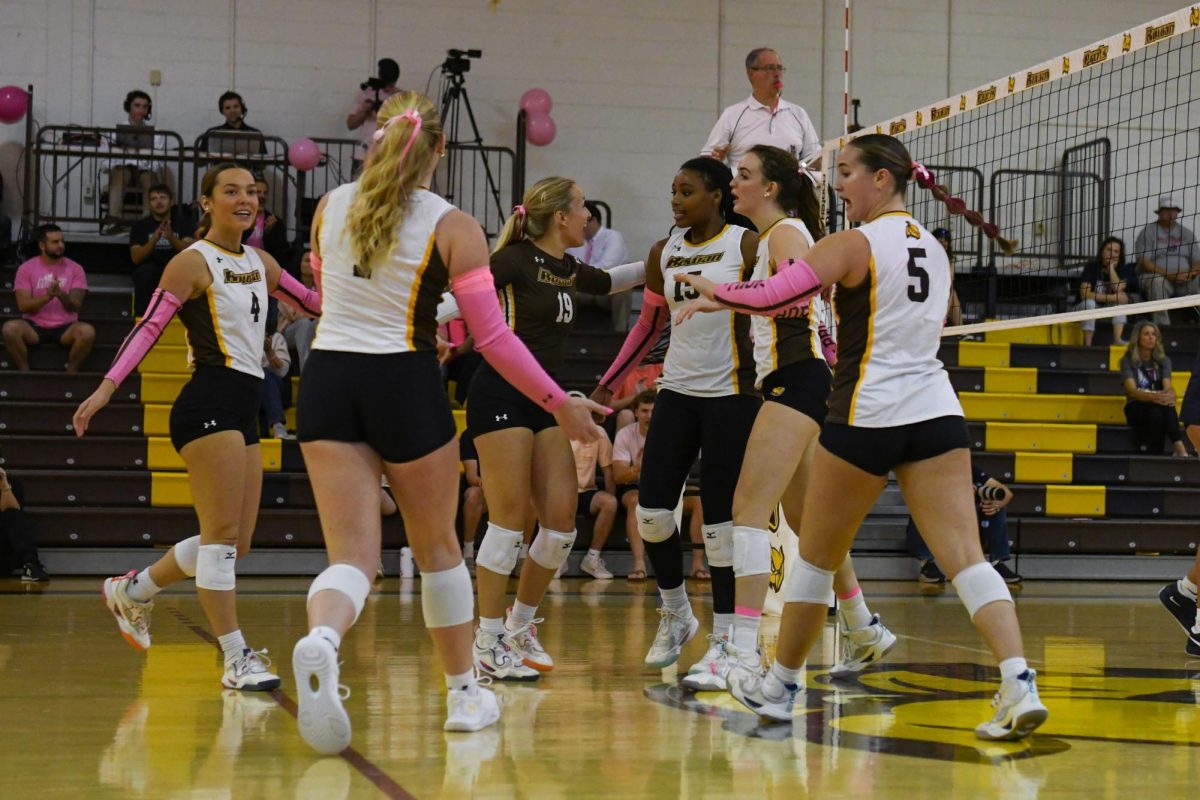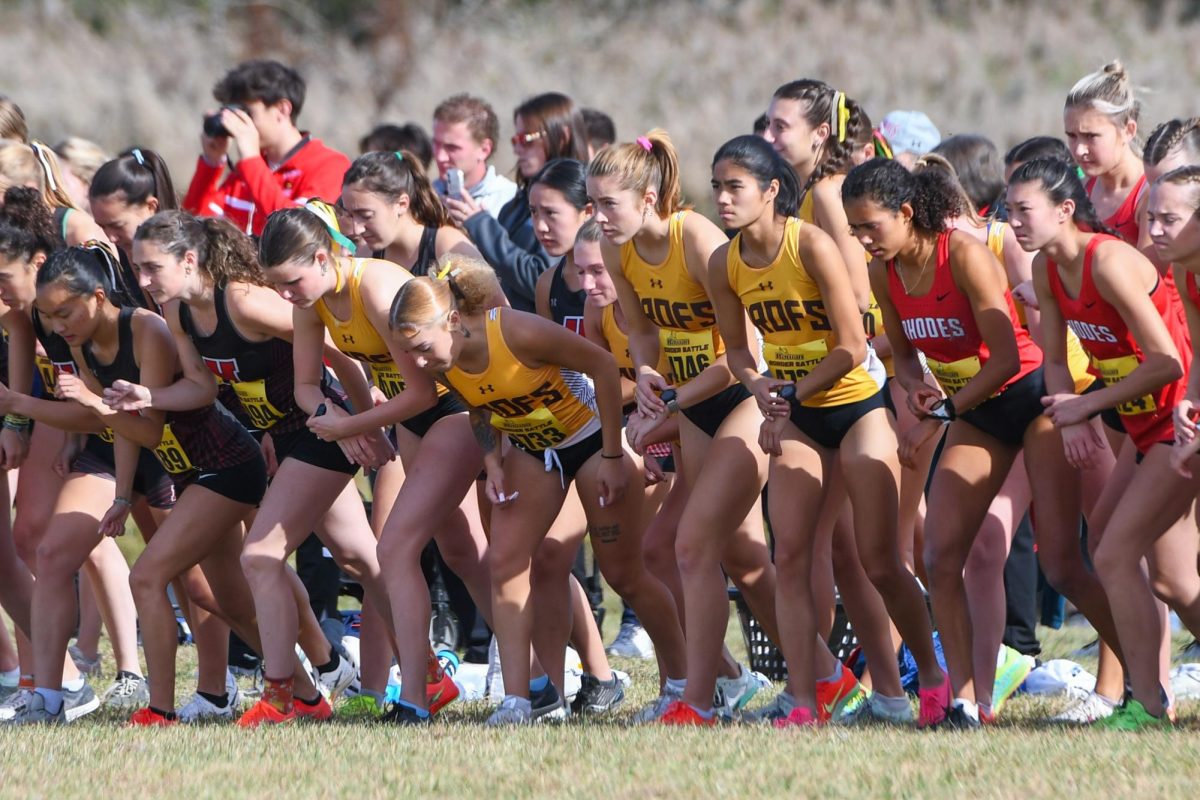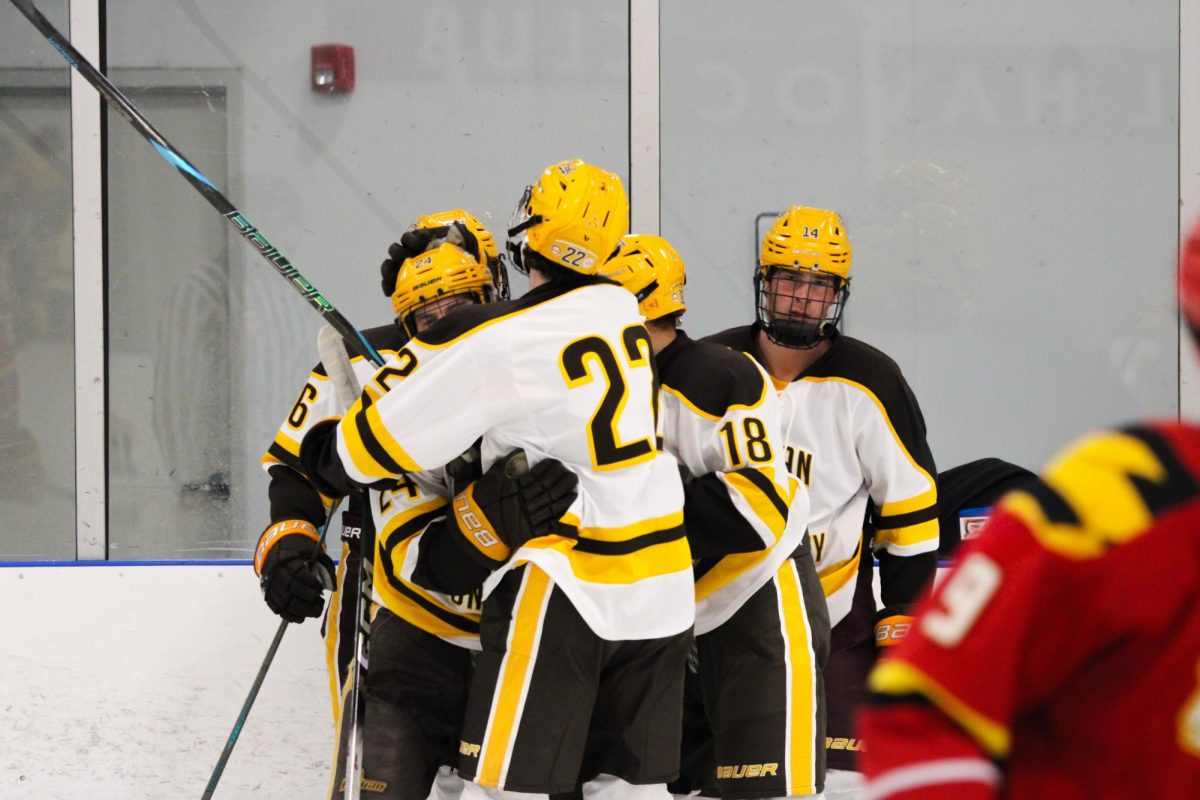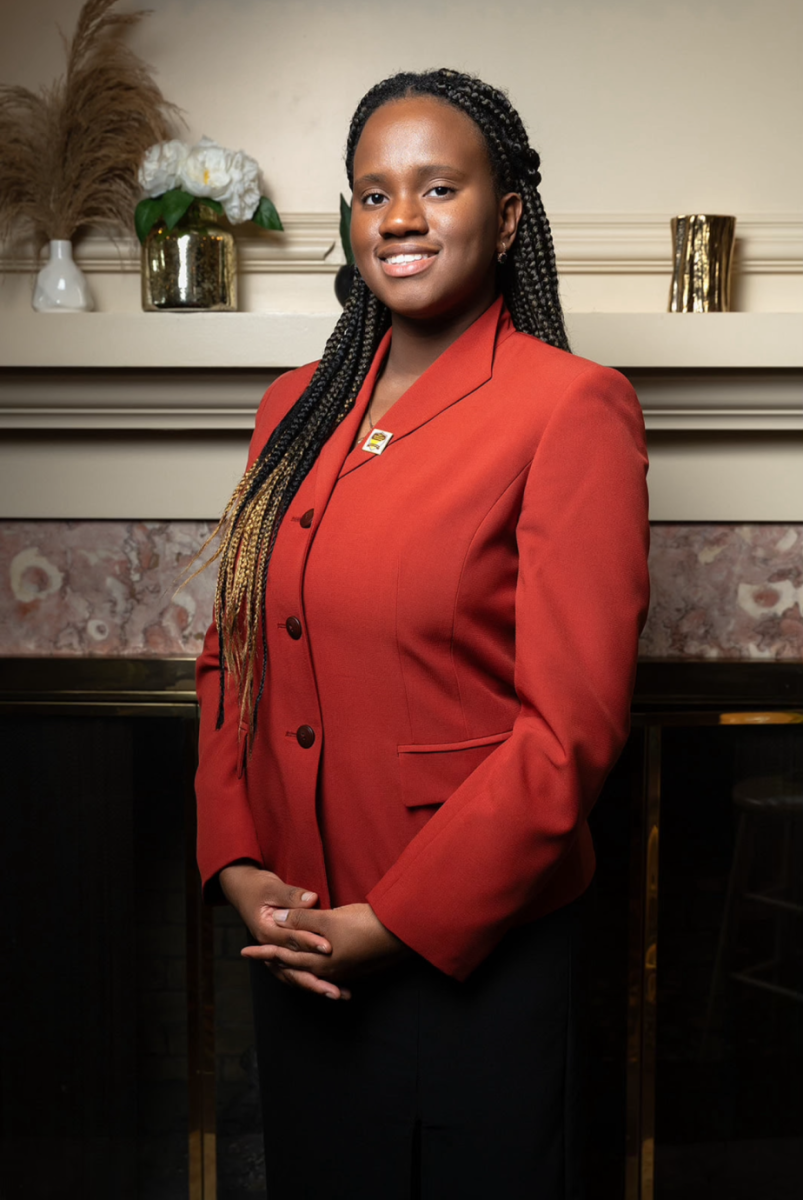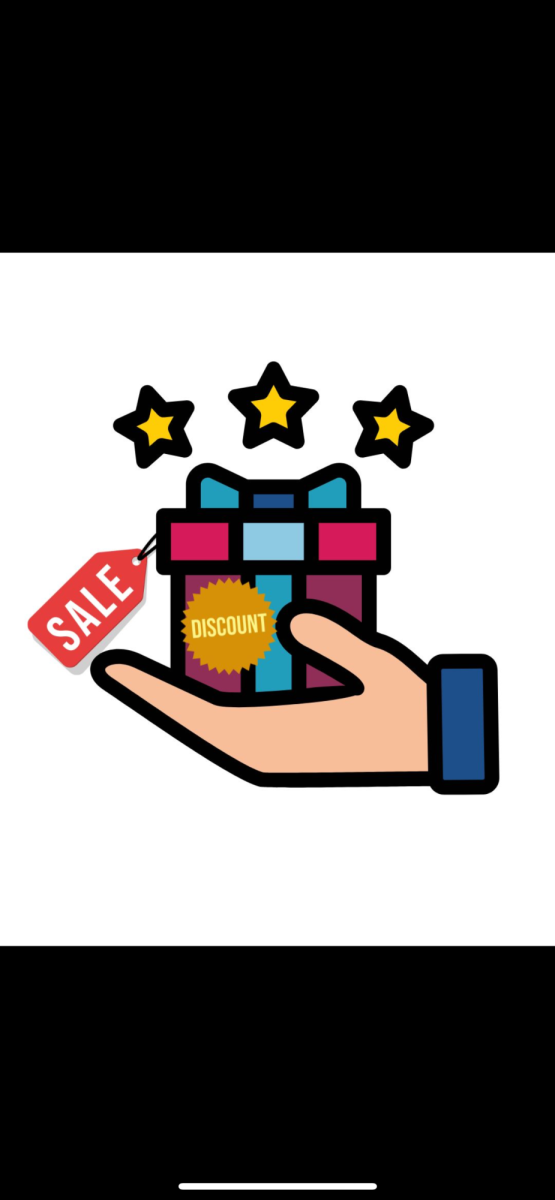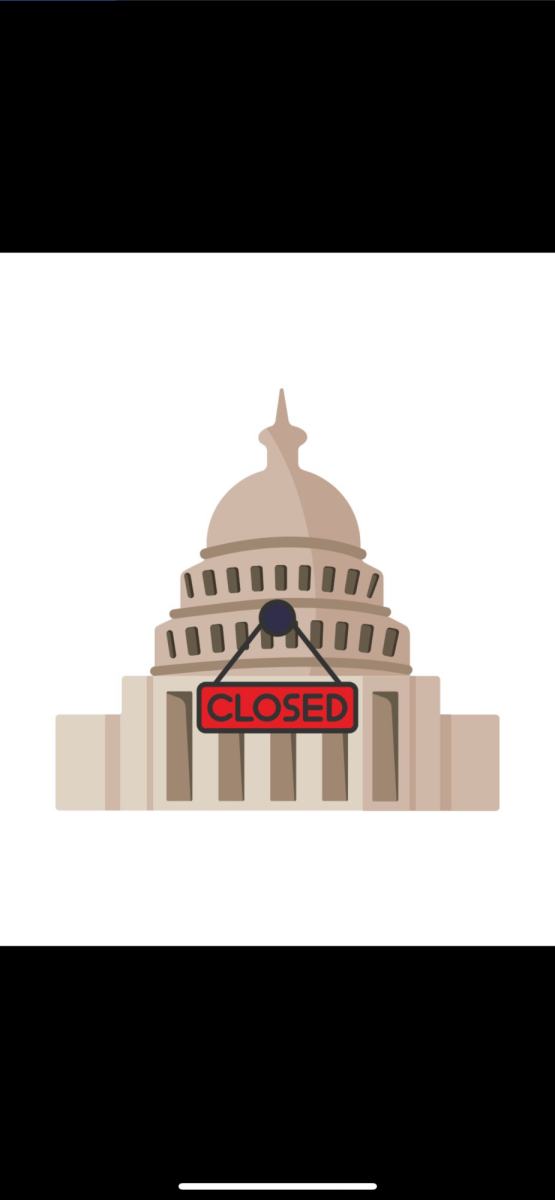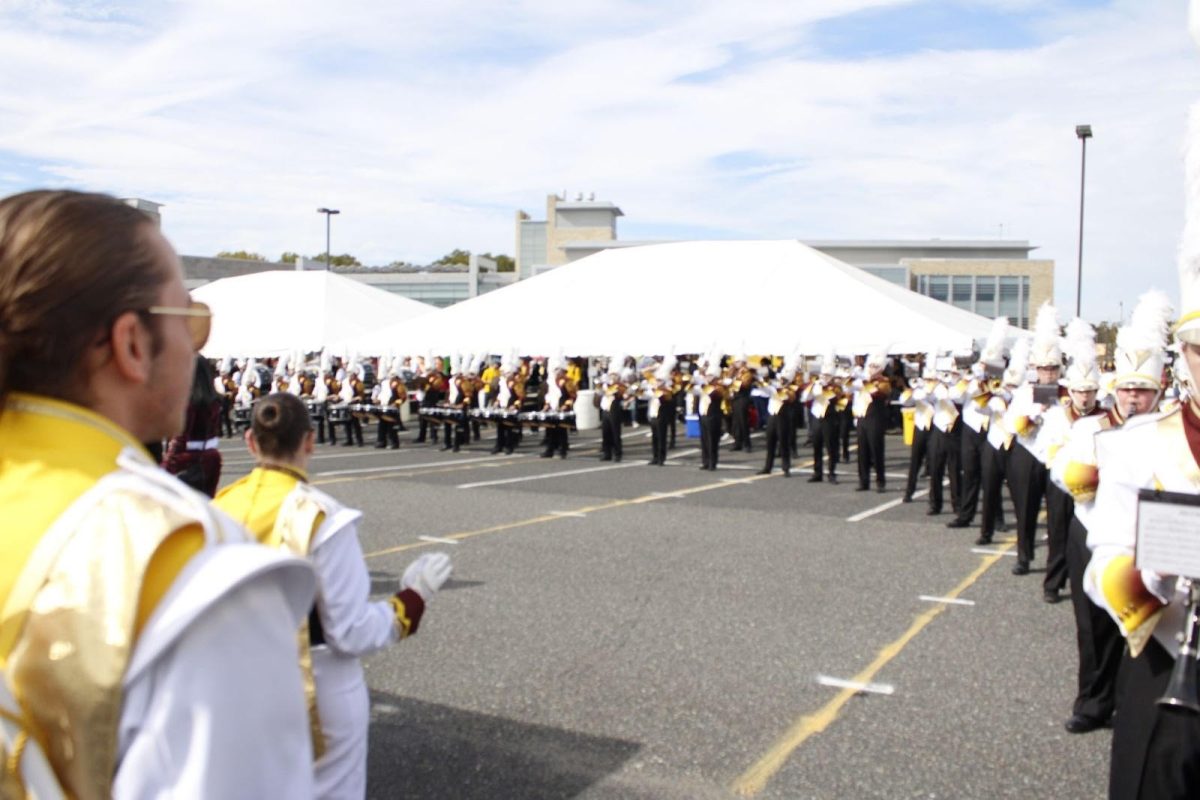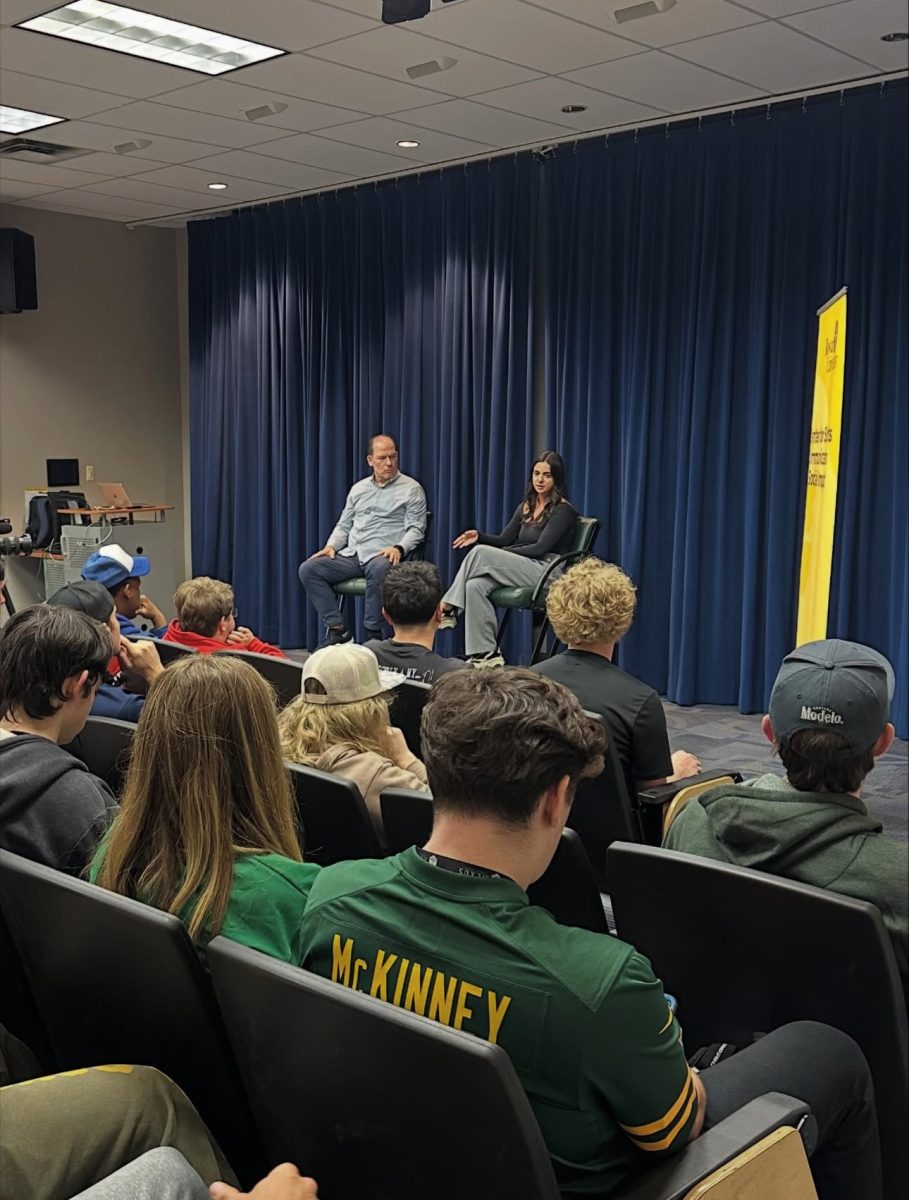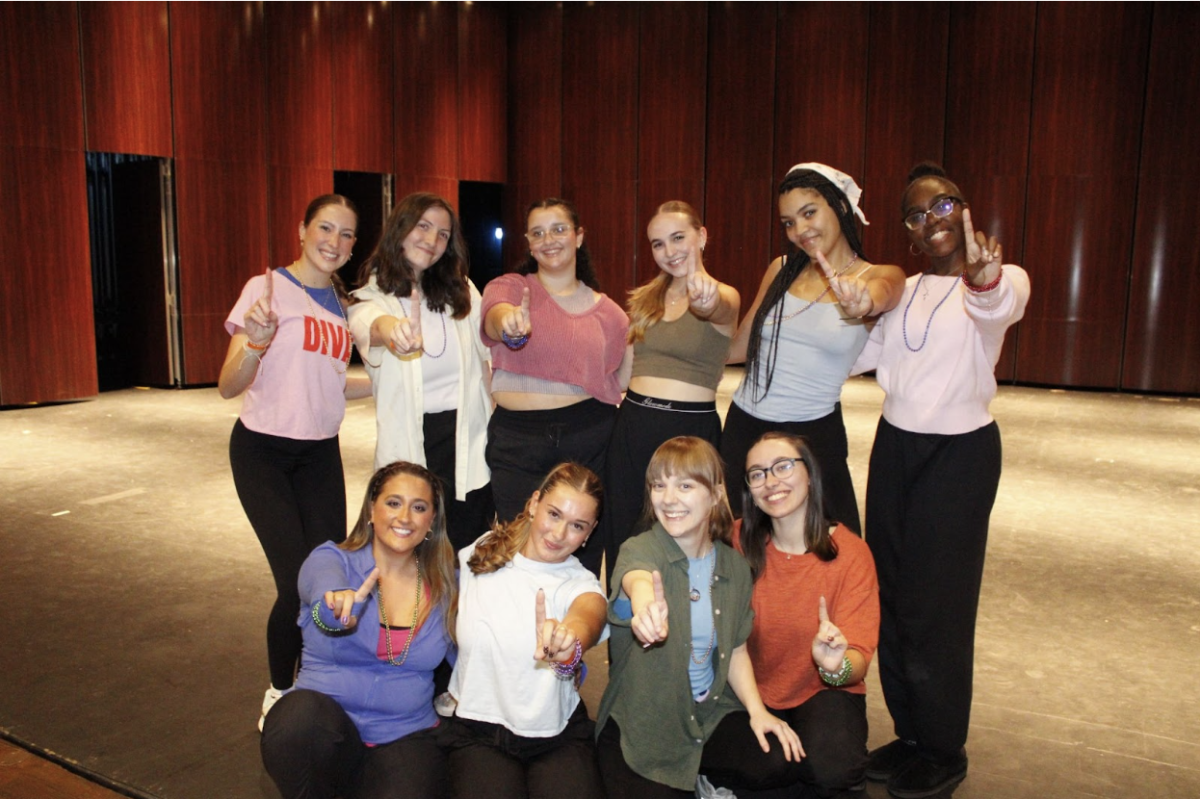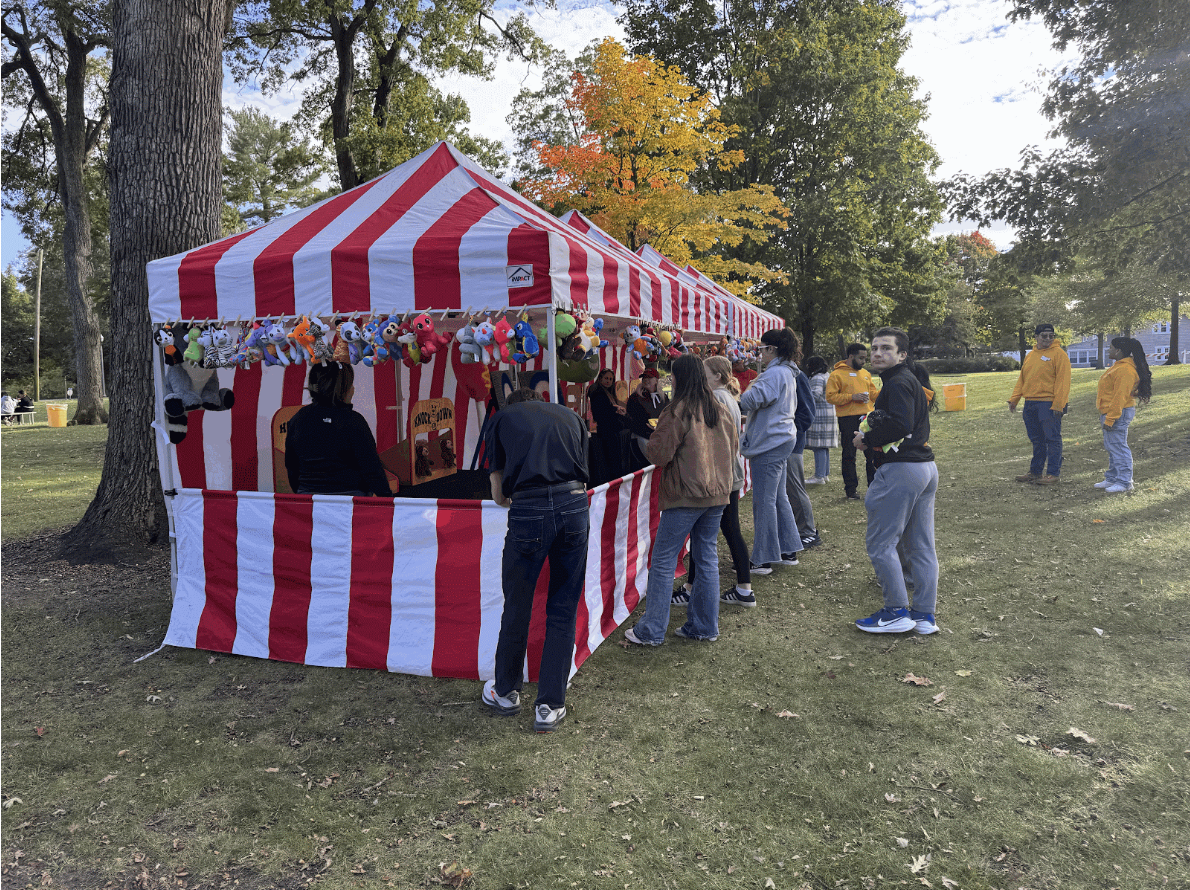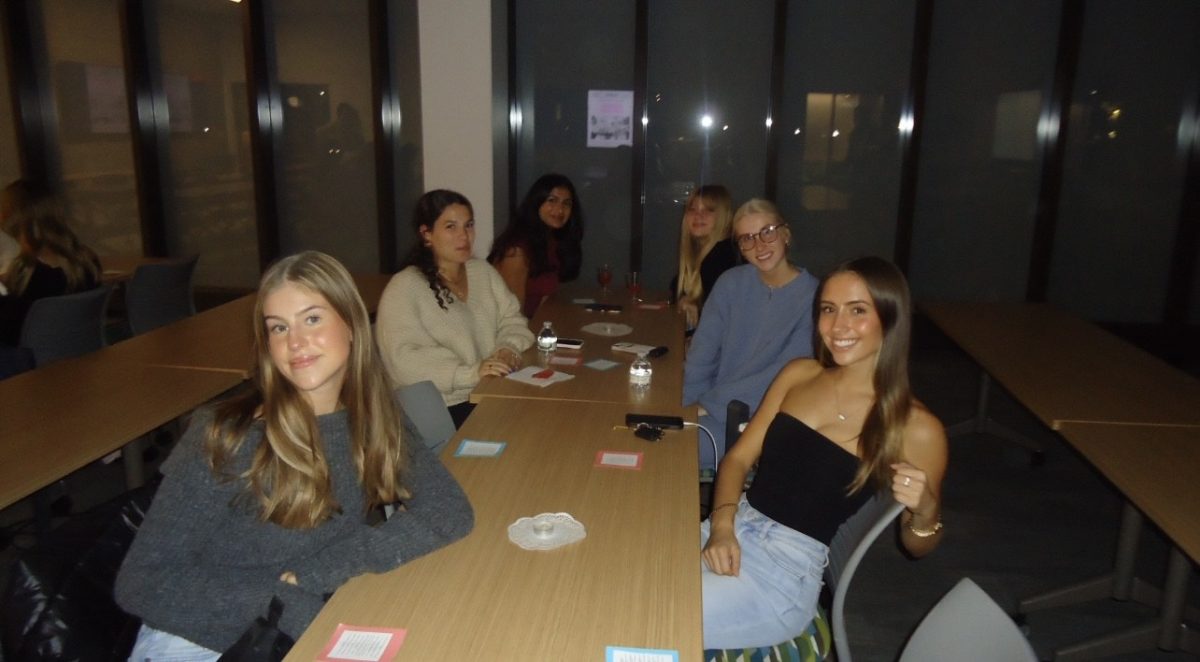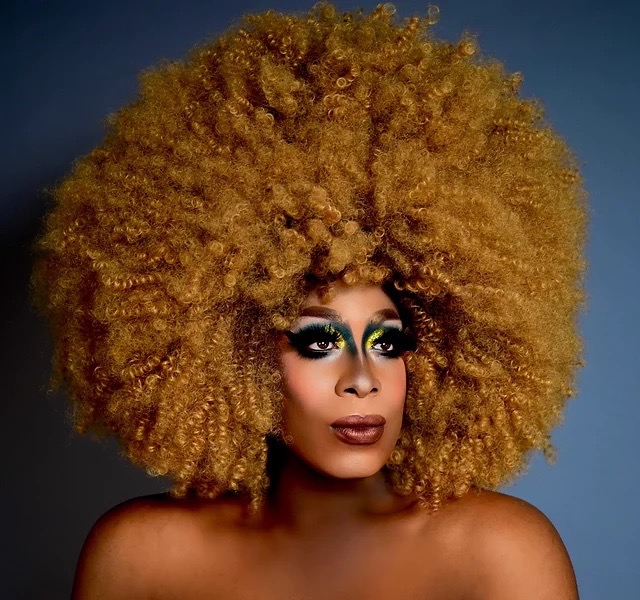Vincent Leggett, known by his drag name VinChelle, spoke about gay liberation and activism within the Philadelphia drag community on March 21 at Rowan’s James Hall.
The discussion was sponsored by the Rowan Center for the Study of Holocaust, Genocide, and Human Rights (RCHGHR) and co-sponsored by Africana Studies and the College of Humanities and Social Sciences (CHSS), with Professors Chanelle Rose and Jody Russell hosting the event, according to the announcer.
Leggett identifies as a cisgender gay man and uses he/him throughout daily life and she/her pronouns in the performing world. VinChelle’s Instagram account has over 16 thousand followers. According to her website, VinChelle was named Philadelphia’s drag queen of the year in 2017 and the best hostess. Doing drag since she was 27, VinChelle performs and produces shows in Philadelphia, New York, Maryland, New Jersey and Delaware while also running Shea Butter Werk Productions. In addition, VinChelle produces “Black Girl Magic” which is meant to highlight local Black entertainers.
VinChelle’s key focus is to make sure her audience has a good time, promote Black excellence and spread her African culture.
As a Nashville native, Leggett, who is 33, came out to his mom when he was 16 but waited until he was 22 to come out to his dad.
“Being from the South, Black and gay, I was always taught to act a certain way,” Leggett said. “You can’t walk a certain type of way, you can’t talk with a lisp, you can’t wear beautiful nails, you can’t do any of that.”
Leggett described his father as a “militant man” and not “the most receptive” when he came out, but their relationship has gotten better throughout the years, as his father now supports him in everything he does.
Because of the expectations of him, being a tall Black man, Leggett spent a large portion of his childhood alone.
“I just want to tell people, be your true self. I really wish I was able to be more myself then,” Leggett said. “Never doubt yourself. Don’t let your family members hinder who you are.”
Leggett also touched on gender fluidity.
“Gender is fluid, it’s effortless. There’s no ‘I’m a boy” or ‘I’m a girl,’” Leggett said. “When I’m in drag, you can say ‘her’ to me, you can say ‘she.’ I’m not going to be offended by that. Now, if I’m in full drag and you call me ‘he’ we’ll [have to] talk about that.”
“When I’m out of drag, I’m Vincent. When I’m in drag I do VinChelle. I love mirroring the two,” Leggett said.
When starting out in drag, Leggett was bothered by the lack of diversity in the Philadelphia area, making him one of the tokens people of color when he was booked for shows.
“I played the game to change the game,” Leggett said.
In June 2020, VinChelle and Icon Ebony-Fierce called out eight white producers that were known to be discriminatory, to take steps toward change. They asked that the producers have up to 50% of their shows include people of color, but only a few “took it seriously.”
Leggett also stressed the importance of white allies listening to their Black friends and including them in shows and asking them what they can do to help.
“It’s not always the race card,” Leggett said. “It’s never the race card because this is how I live my life every day, I can’t wake up white.”
Gay Black men also face criticism within their own community.
“That’s what I hate about my community,” Leggett said. “We should be more inclusive and come together but a lot of times, my own Black people, are so homophobic to their own people. If I want to go in a room with all [straight] Black people, are they gonna receive me well? Are they going to make fun of me? And I’ve always thought [about] that.”
Colorism also plays a part in the drag community, making it harder for darker or brown-skinned queens to be put in the forefront.
“When they do shows, and they say [they’ll put somebody Black in], they will put a light-skinned Black person on the show or someone who doesn’t look like me,” Leggett said. “I just think that it’s so sad, again within our community, we have to be so divided as far as who’s light and who’s dark.”
Leggett wants Black people with lighter skin tones to recognize their privilege but accept and understand that they are all still Black.
“My goal is to bring the Black community together and showcase Black talent,” Leggett said. “There’s so much beautiful Black talent out there of all kinds and be, I always say a beacon of light, but it’s really a beacon of milk chocolate.”
For comments/questions about this story tweet @TheWhitOnline or email [email protected].



